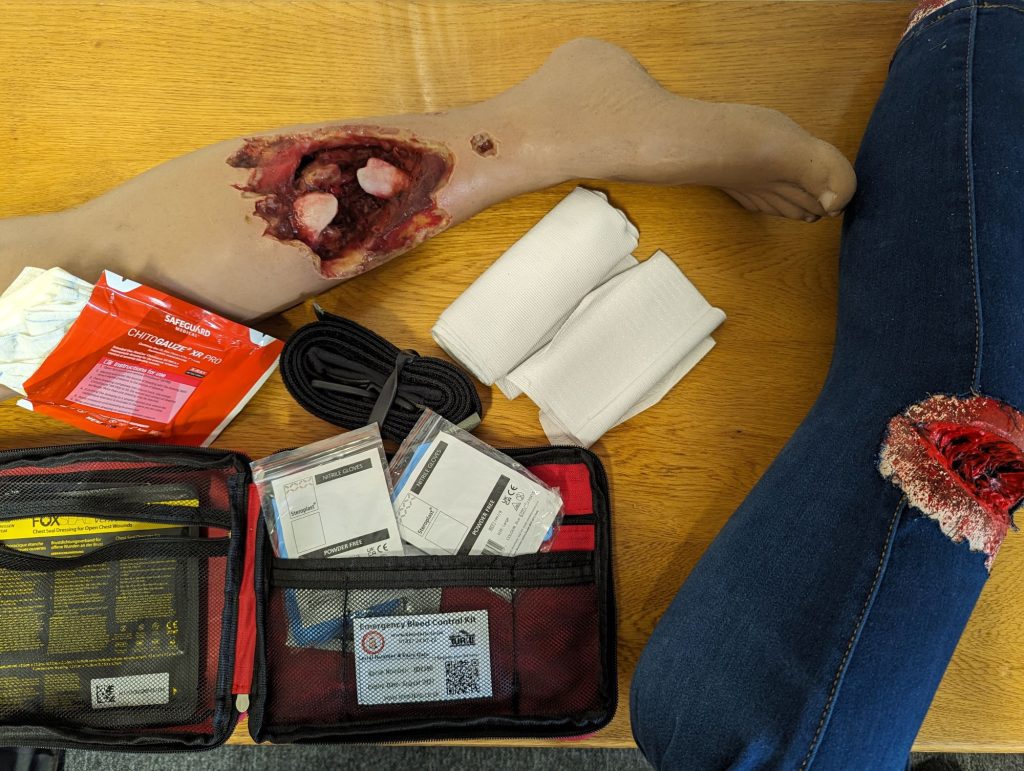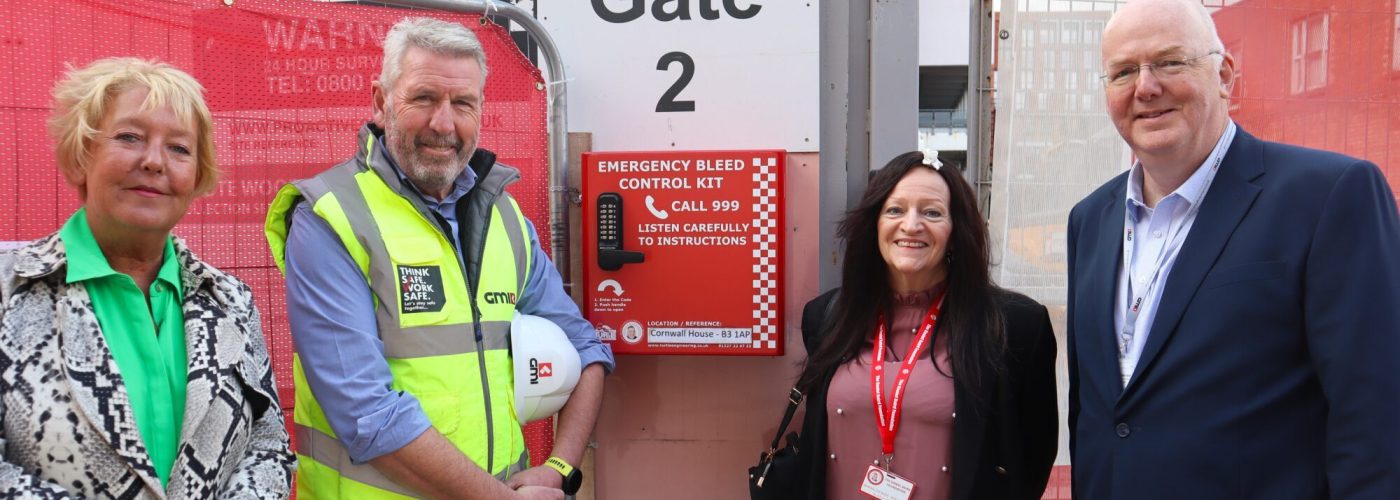Turtle Defib Cabinets – an innovative manufacturer of defibrillator and bleed control cabinets, bleed control kits and supplier of medical equipment – is recommending people who work in the construction industry to learn the location of their nearest defibrillator and bleed control kit this World Day for Safety and Health at Work (28 April 2024).
Action needs to be taken in less than five minutes in the event of a serious bleed injury or cardiac arrest. Therefore, being confident of where equipment can be found is a sensible ‘just in case’ strategy that can mean the difference between life and death.
Somewhat shockingly, there is still no legislation in the UK for businesses to install Automatic External Defibrillators (AED) in their premises. Nevertheless, Turtle also urges any person finding a lack of lifesaving medical equipment nearby office to question their health and safety departments and petition for a higher level of team care.
There is also an opportunity for businesses to contribute to Environmental, Social and Governance (ESG) Targets while keeping their employees safe; installing an external locked cabinet is an important resource for the local community.

Photo caption: Representatives from GMI Construction, The Daniel Baird Foundation and Birmingham Council outside a construction project in Birmingham where GMI Construction installed a publicly accessible bleed control cabinet
For every minute that passes without defibrillation, the chance of survival decreases by seven to 10 per cent, with survival being unlikely after ten minutes.
There are more than 30,000 out-of-hospital cardiac arrests in the UK each year according to the British Heart Foundation and the survival rate is less than 1 in 10. Considering the incidence of cardiac arrests and the critical time scale in which a person requires defibrillation to survive, Turtle maintains that Automatic External Defibrillators (AED) should be available in all places where ambulance response could exceed five minutes. The time taken to retrieve the equipment must also be factored in, meaning many construction sites should ensure multiple defibs are accessible.
A person suffering a catastrophic injury can bleed out and die in as little as three minutes.
135 workers were killed in work-related accidents in 2022/23¹ and there were 60,645 employee non-fatal injuries reported by employers in 2022/23 (RIDDOR)²; of which 32 per cent were slips trips and falls, 11 per cent involved a person being struck by a moving object and both falls from height and acts of violence were recorded at 8 per cent. The risk of a person suffering a bleed injury in one of these scenarios is high so health and safety departments should ensure they have Ambulance Service designed and approved bleed control kits in premises and on-site vehicles – accessible within a minute or two at the most.
Furthermore, the Office for National Statistics revealed in January 2024³ that knife crime has surged by 5 per cent in the past year so projects located in hot spot town and city centres have an opportunity to safeguard their staff and the public by possessing a bleed control kit. And – as with any publicly accessible and registered defibrillator – a 999 operator will direct a caller to the nearest public bleed control kit if required, meaning an externally installed bleed control cabinet is beneficial for the whole community 24-7. GMI Construction has implemented this strategy in city centres.
Mike Dowson, Founder and MD or Turtle Defib Cabinets, said: “We never think the worst will happen, but the figures are sobering; 30,000 people experience cardiac arrest each year, 60,645 employees were injured at work last year and there were 48,716 knife-enabled crime offences in the year to September 2023. Then you look at the action and survival statistics and it’s clear that defibs and bleed control kits must be within reach in just a couple of minutes – the chance of survival after cardiac arrest decreases by seven to 10 per cent every minute without defibrillation and a person can bleed out in as little as three minutes.”
“This World Day for Safety and Health at Work, I’d like to urge everyone on site or in an office to know exactly where to find their nearest defib and bleed control kit. If the lifesaving medical equipment can’t be accessed and brought back to their location quickly, I suggest they speak to their health and safety department; with a commitment from businesses to own the equipment and from employees to know the location, then I’m certain more lives can be saved.”
People should always call 999 in the case of a medical emergency and the Ambulance Service will direct the caller to a defib cabinet or bleed control cabinet if there is one nearby.
Turtle works closely with The Daniel Baird Foundation and £5 from every bleed control kit and £10 from every cabinet is donated to the non-profit.
For more information about Turtle’s defib cabinets, bleed control cabinets and the equipment to place inside, please visit www.turtledefibcabinets.co.uk, or follow on LinkedIn, Facebook and Twitter.
Building, Design & Construction Magazine | The Choice of Industry Professionals





